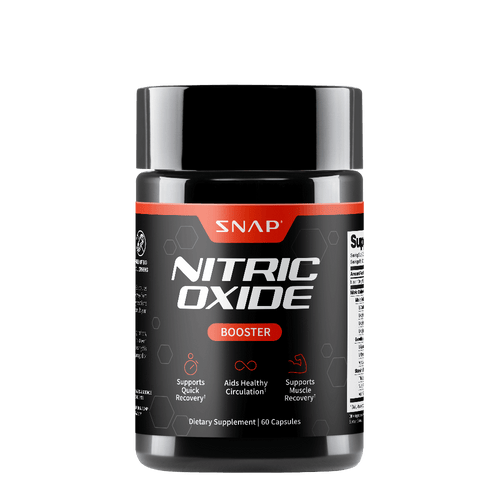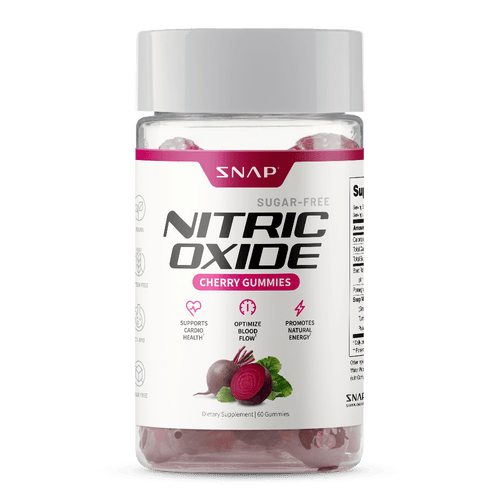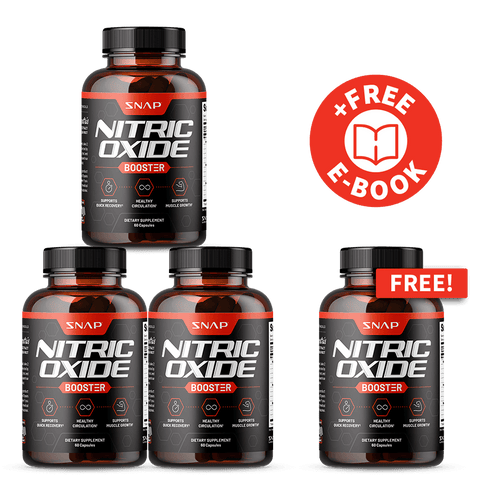As far as my dentist is concerned I should be flossing daily, and using mouthwash periodically to avoid periodontal disease...
But then I read an article talking about some clinical studies that show that we need bacteria in our saliva to convert nitrate to nitrite which then gets converted into nitric oxide in the body.
I have a vegetable nitrate-rich diet, full of fresh green leafy vegetables and beets daily, I do this to support healthy blood pressure and help my body reduce oxidative stress.
So by using mouthwash, am I actually reducing these benefits?
What does nitric oxide do exactly?
Biologically, nitric oxide behaves by messaging blood vessels to relax and authorizing them to expand. What this does is, to allow blood, nutrients, and oxygen to flow more readily throughout the body.
You can take Nitric oxide as a dietary supplement but you can also readily source nitrates from our foods.
Evidence has shown that nitrates and nitrites serve as a reservoir and perform similar nitric oxide activity-like functions.
Therefore getting nitrates from dietary sources plays an important role in various physiological activities, and can ensure optimal nitric oxide levels in the body.
Research suggests that getting nitrates from vegetables is a particularly effective method of improving your heart health (source).
Nitric oxide has a role in improving blood flow, circulation and so helps keep blood pressure healthy.

Why do you care about nitric oxide?
As we age, our own nitric oxide production capabilities decrease, which may contribute to the aging process, so we need to consume more as we age (source).
While nitric oxide has whole body health benefits, there are 4 main areas of targetted effects.
1. Immune system: Nitric oxide helps immune cells communicate and respond promptly to invaders.
2. Circulatory system: Nitric oxide appears to help boost healthy blood flow and tissue oxygenation, supporting healthy blood pressure.
3. Exercise and muscle performance: Nitric oxide may be correlated to a slight improvement in physical performance. Athletes who received nitrate supplements appear to tire slightly more slowly than those who don’t receive the supplement. Adding nitrate rich foods to your diet may help naturally boost your nitric oxide measurements and help exercise performance.
4. Detoxification - aids the liver and cells get rid of oxidative stress in the form of radical damage.

Nitric Oxide Booster (60ct)
$40.00
Here’s what we know
Consuming plant-based nitrate-rich foods has been shown to increase blood flow and circulation and support healthy blood pressure.
It also helps with liver detoxification and combating free radical damage, helping to reduce oxidative stress so nitrates have true anti-aging benefits.
But for many of these benefits to occur, they need conversion to nitrite and then nitric oxide, this happens in the body in various ways.
Nitric oxide synthesis occurs through 2 recognized pathways.
The first nitric oxide pathway- catalyzes the formation of nitric oxide from a conversion of the amino acid L-arginine and oxygen.
The second, takes circulating nitrate (from foods) and generates nitrite then converts to nitric oxide.
While they have similar outcomes in the generation of nitric oxide, there are differences in how these pathways are activated.
For example, the second pathway, conversion from dietary nitrates, is dependent upon the action of bacteria in the mouth (which aids conversion to nitrite) and again in the gut (involved in the conversion to nitric oxide).
So what can negatively impact NO conversion?
There are several factors that can negatively impact this conversion. The use of antibiotics kills both harmful and beneficial bacteria altering the gut microbiome.
That doesn’t mean that every time you take antibiotics you are not converting nitritres into nitric oxide.
This means that you should be mindful of keeping your gut healthy so that this conversion can happen.
Ensuring a healthy balance of bacteria in the gut is the way to ensure optimal NO conversion of dietary nitrates, and, taking a probiotic after antibiotics can help rebalance the gastrointestinal microbiota or environment.
Another thing that can interfere with this conversion is mouthwash (source).
So if I use mouthwash, is it bad for blood pressure?

There has been research around this very topic, and some experts say that using strong mouthwash can inhibit the conversion of nitrate from foods to nitrite in the mouth as it reduces naturally occurring bacteria that is required for this conversion to take place (source).
But if we consider that antibacterial mouthwash use has been clinically proven to reduce periodontal disease, then would the benefits outweigh the risks?
There is evidence further that links periodontal disease to high blood pressure, the thing that nitric oxide helps to keep healthy (source).
Peridontal disease is associated with many inflammatory conditions and therefore oral hygeine and periodically using antibacterials mouthwash as well as brushing and flossing regularly should be maintained.
*Note the key word; periodically!
Using mouth wash once a week will ensure that bacterial balance is maintained, but not enough to significantly impact processes of natural conversion.
There are also mouthwashes that are stronger than others. Commercially available mouthwash tend to be more gentle and appropriate for periodic use.
There are however clinical strength mouthwash that may be prescribed to you after an orthodontal procedure that are designed for short term use.
Ongoing daily use of these clinical strength mouth washes is not advised beyond the set time suggested by your orthopedist and may negatively impact your oral microbiome.

Nitric Oxide Gummies - Cherry
$36.00
Healthy Foods to Boost Nitric Oxide
Recent reports show that vegetables, especially beets and green leafy vegetables, such as spinach and kale contain high nitrate levels (source), which contributes nearly 80%-90% of the total dietary nitrate (source).
Other sources of nitrate are drinking water (15%-20%) and other foods, to a lesser degree including animal-based products (10%-15%) (source).
Nitrate-rich vegetables account for 60%–80% of the daily nitrate intake in a Western diet, and substantial elevations in the plasma nitrite levels can occur through increasing the dietary nitrate intake (source).
And, we get substantially more of our dietary nitrates from eating leafy greens than we do from bacon and hot dogs – 80% versus 5%.

Am I getting enough from my diet?
Taking a Nitric Oxide supplement is a great option to ensure you’re getting adequate nitric oxide especially as you age.
We also recommend Snap Supplements 100% organic Beet powder and contains not just beets, but also has additional antioxidant whole foods - pomegranate juice and red spinach extract.
These added antioxidants support inflammation, and reduces free radical damage.
To assist with the natural heart health benefits of this product they have added B vitamins, potassium and vitamin C. It is a delicious powder you can drink hot or cold, or added to smoothies, and is naturally sweetened with organic stevia.
$107.00

3 Nitric Oxide Boosters + 1 Free Container + Free E-Book
$159.00
What we know now
Nitric oxide works hard to support healthy blood pressure, promote circulation, support immune function and help muscles to recover from exercise.
Nitric oxide levels naturally decrease as we age and so consuming plant-based nitrate-rich foods is key to support healthy blood pressure and overall cardiovascular health.
To ensure optimal conversion there are steps you can take to optimize NO effects.
Taking a proactive approach to your gut health by taking a probiotic can help keep your microbiome healthy.
Maintaining oral health is critical for wellness, using a commercial mouthwash periodically to ensure periodontal health is important, but limit clinical strength mouth was to prescribed usage only to avoid removal of commensal bacteria necessary for effective nitrate conversion.
Consuming nitrate-rich vegetables and taking nitric oxide boosting dietary supplements regularly is important especially as we get older to support healthy blood pressure, aid detoxification and support a healthy immune response.